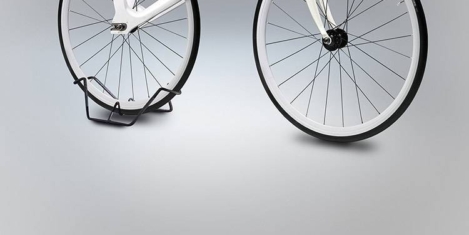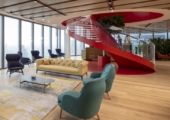March 6, 2019
City of Cambridge to digitally clone itself in bid to tackle congestion and pollution
 Smart Cambridge and researchers from the Cambridge Centre for Smart Infrastructure and Construction (CSIC) at Cambridge University have announced plans to create a digital clone of the city to explore how congestion and commuting times can be reduced and air quality improved. Researchers at the University of Cambridge-based CSIC and officers from Cambridgeshire County Council’s transport, sustainability and planning departments are examining how digital technology and data can be used to support decisions and make improvements.
Smart Cambridge and researchers from the Cambridge Centre for Smart Infrastructure and Construction (CSIC) at Cambridge University have announced plans to create a digital clone of the city to explore how congestion and commuting times can be reduced and air quality improved. Researchers at the University of Cambridge-based CSIC and officers from Cambridgeshire County Council’s transport, sustainability and planning departments are examining how digital technology and data can be used to support decisions and make improvements.
The study will focus on the creation of a digital twin prototype, combining traditional urban modelling techniques, new data sources and data analytics. The prototype will include the recent trends of journeys to work in Cambridge, including how people of different ages and employment status travel to work and how different factors affect their travel. It will also explore future possible journeys to work based on transport investment, housing developments and how flexible working and new technology may impact commuting. A web-based modelling platform will also visualise future development options and give people an opportunity for feedback.
“Digital twins have the potential to help cities develop more holistic policies which will assist in addressing some of the very real challenges urban areas face such as congestion, pollution and the need to become more sustainable,” said Dan Clarke, strategy and partnerships manager for Smart Cambridge.
CSIC led a workshop with council officers in December which helped them to understand local requirements and how they can deliver a digital twin prototype which responds to imminent city challenges and supports the policy goals of improving air quality and reducing congestion.
“We are now working on the prototype and will deliver an initial version in eight weeks,”said CSIC research associate Dr Timea Nochta. “We will continue to develop it alongside the council so that it can be used to its full potential and so that officers feel confident in asking the right questions for technology to answer.”
Claire Ruskin, executive board member for the Greater Cambridge Partnership, and CEO of Cambridge Network, said: “We have worked together to collect and understand information before, and Smart Cambridge is delighted to be working with university teams again. We can begin developing next-generation tools for supporting plans and policies to give people alternatives to their cars to help improve journeys, reduce congestion and improve air quality in Greater Cambridge.”
The project has been funded by the Ove Arup Foundation and the Centre for Digital Built Britain. The work of Smart Cambridge is supported by the Connecting Cambridgeshire programme, led by Cambridgeshire County Council, with investment from the Greater Cambridge Partnership. CSIC is an Innovation and Knowledge Centre funded by the Engineering and Physical Sciences Research Council, Innovate UK and industry.














 Job security is the top reason employees in the UK joined their company, and also the main reason they stay, according to Mercer’s
Job security is the top reason employees in the UK joined their company, and also the main reason they stay, according to Mercer’s 






 With the rise of both cloud-based technology and the worldwide gig economy, the last ten years of the 21st century have seen some near-revolutionary changes in workplace practice. Entrepreneurs everywhere have been more than happy to make use of these developments, taking advantage of the new business models these changes have brought. For example, IDG found that
With the rise of both cloud-based technology and the worldwide gig economy, the last ten years of the 21st century have seen some near-revolutionary changes in workplace practice. Entrepreneurs everywhere have been more than happy to make use of these developments, taking advantage of the new business models these changes have brought. For example, IDG found that 













March 6, 2019
Beware the great apex fallacy of workplace design 0
by Mark Eltringham • Comment, Flexible working, Furniture, Technology, Workplace design